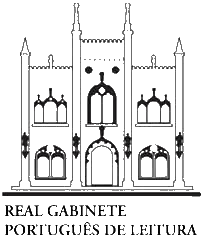Mateus, anarchist: the “delinquent man” in Amanhã (1901)
DOI:
https://doi.org/10.37508/rcl.2022.n47a476Keywords:
Naturalism, Abel Botelho, Positivism, Cesare LombrosoAbstract
We aim to analyze Mateus, protagonist of the naturalist novel Amanhã (1901), by Abel Botelho. At the end of the 19th century, Cesare Lombroso wrote Delinquent man (1876) and The anarchists (1894), in which he proposed to draw the profile of a “born delinquent”. In Portugal, Abel Botelho publishes the pentalogy entitled “Social Pathology”, with which he intended to criticize late-century Portuguese society, and of which it is part Amanhã. Due to the historical context, it is suggested that Abel Botelho read the works of Cesare Lombroso to build the protagonist of Amanhã. As we will try to demonstrate, since the childhood of Mateus, we identify characteristics that will form his character as a “delinquent man”.
Downloads
References
BOTELHO, Abel. Amanhã. Porto: Lello & Irmão - Editores, 1982.
LOMBROSO, Cesare. O homem delinquente. Trad. Sebastião José Roque. São Paulo: Ícone, 2016.
LOMBROSO, Cesare. Los anarquistas. Trad. Julio Campo e Gabriel Ricardo España. Buenos Aires: Imprenta Elzeviriana de P. Tonini. 1895. Disponível em: https://obtienearchivo.bcn.cl/obtienearchivo?id=documentos/10221.1/ 55917/1/130462.pdf. Acesso em: 21 nov. 2021
MÓNICA, Maria Filomena. Os Trabalhadores e os Anarquistas. In: ABREU, Carlos (Org.). 100 anos de anarquismo em Portugal, 1887-1987. Lisboa: Secretaria de Estado da Cultura, Biblioteca Nacional, 1987, p. 11-15.
MOISÉS, Massaud. A “Patologia Social” de Abel Botelho. São Paulo: EdUSP, 1961.
ROQUE, Sebastião José. Vida e obra de Cesare Lombroso. In: LOMBROSO, Cesare. O homem delinquente. Trad. Sebastião José Roque. São Paulo: Ícone, 2016, p. 5-12.
SANTANA, Maria Helena. Literatura e Ciência na Ficção do Século XIX: a narrativa naturalista e pós-naturalista portuguesa. Lisboa: Imprensa Nacional; Casa da Moeda, 2007.
Downloads
Published
How to Cite
Issue
Section
License
Authors who publish in Convergência Lusíada agree with the following terms:
- Authors retain copyright and grant the journal right of first publication with the work simultaneously licensed under a Creative Commons Attribution-NonCommercial 4.0 International License (CC-BY-NC 4.0) that allows others to share the work with an acknowledgment of the work's authorship and initial publication in this journal.
- Authors may enter into separate, additional contractual arrangements for the non-exclusive distribution of the journal’s published version of the work (e.g., post it to an institutional repository or publish it in a book), with an acknowledgment of its initial publication in this journal.
- Authors are permitted and encouraged to post their work online (e.g., in institutional repositories or on their website) prior to and during the submission process, as it can lead to productive exchanges, as well as earlier and greater citation of published work.

Revista Convergência Lusíada is licensed under a Creative Commons - Atribuição-NãoComercial 4.0 Internacional.









